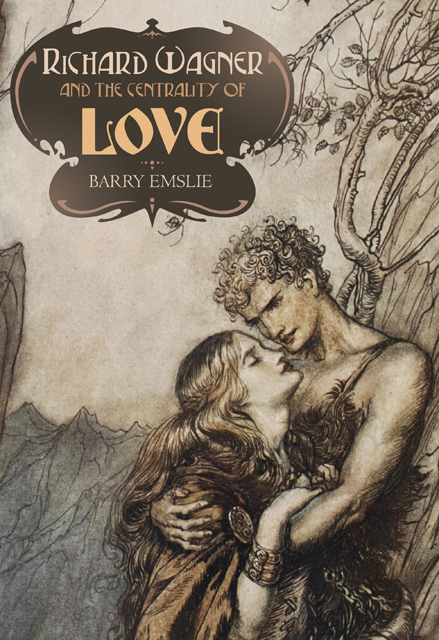Book contents
- Frontmatter
- Contents
- Author's Note
- 1 Introduction, or the Uses of Love
- 2 Sensuality and Spirituality in the Early Music Dramas
- 3 Music and the Eternal Feminine
- 4 The Ring of the Nibelung
- 5 Love and Death: Tristan und Isolde
- 6 The Mastersingers of Nuremberg
- 7 Parsifal
- 8 Contradictions and Speculations
- Notes
- Bibliography
- Index
2 - Sensuality and Spirituality in the Early Music Dramas
Published online by Cambridge University Press: 02 March 2023
- Frontmatter
- Contents
- Author's Note
- 1 Introduction, or the Uses of Love
- 2 Sensuality and Spirituality in the Early Music Dramas
- 3 Music and the Eternal Feminine
- 4 The Ring of the Nibelung
- 5 Love and Death: Tristan und Isolde
- 6 The Mastersingers of Nuremberg
- 7 Parsifal
- 8 Contradictions and Speculations
- Notes
- Bibliography
- Index
Summary
There are many possible ways of approaching both the dichotomy formed by the conflicting claims of sensual and spiritual love, and Wagner's attempts to resolve them. No doubt this reflects its status as the most fundamental and far-reaching tension in Wagner's intellectual, personal and artistic struggles. For Wagner must have it both ways. That is, the indulgence of sensual ecstasy is not to lead for the Wagnerian hero and thus by implication to his creator, to any diminution in his status as a lofty and spiritual figure whose fundamental agenda is to recognise and save his own soul, the soul of art, and the collective soul of the German nation. Wagner's struggles with the dilemma of keeping both of these categories simultaneously in play so that each validates the other until they are at the end – which is to say in the characters of Kundry and Parsifal in his last stage work – utterly subsumed into each other, might, for instance, be put in the context of German idealist philosophy and its troubled history. And, of course, it is also a necessary ingredient in Wagner's many-sided encounter with religion and his determination to violate religious taboos while not giving an inch in respect of his lofty moral status. Ultimately – again in Parsifal – he will effect an astonishing fusion of both polarities so that what might be taken as a doctrinal sin will turn out to be a higher (Wagnerian) sacrament. Certainly, both these contexts (the German philosophical tradition and the encounter with religion[s]) will ultimately play important roles in the following arguments. However, the grand resolution of Parsifal is some way off and the question of German philosophy is so big (even in the selective manner in which it will be later employed here) that at this stage the issue of sensuality and/versus spirituality is best regarded, whether in respect of Wagner's music dramas, his essays, or his personal struggles, as centred on the woman.
Wagner's heroines in the music dramas (that is from The Flying Dutchman onwards) are the most obvious site on which the perpetual battle between the conflicting claims of sensuality and spirituality takes place. Initially the matter is dealt it with in relatively superficial and simplistic terms.
- Type
- Chapter
- Information
- Richard Wagner and the Centrality of Love , pp. 8 - 20Publisher: Boydell & BrewerPrint publication year: 2010
- 1
- Cited by



